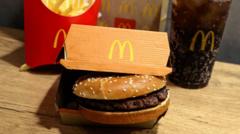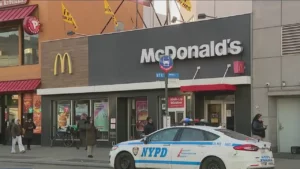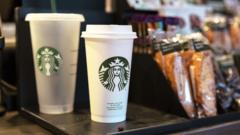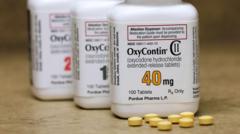McDonald's has announced the return of its Quarter Pounder burgers across all US locations after beef samples tested negative for E. coli, which had resulted in numerous illnesses and one fatality. The company has eliminated slivered onions from its supply chain as a precaution and is facing lawsuits from affected customers.
McDonald's Resumes Quarter Pounder Sales After E. coli Scare

McDonald's Resumes Quarter Pounder Sales After E. coli Scare
Following an E. coli outbreak linked to its Quarter Pounder, McDonald's has cleared its beef supply and is back on track, albeit with changes.
McDonald's has officially resumed sales of its popular Quarter Pounder burger at all US restaurants after a thorough investigation revealed that its beef patties were not the source of an E. coli outbreak. The outbreak, which led to at least one death and affected dozens of others, prompted the fast-food chain to suspend sales in about 20% of its locations last week.
According to McDonald's, the Colorado Department of Agriculture conducted tests on the beef patties and confirmed they were free from contamination. "The issue appears to be contained to a particular ingredient and geography, and we remain very confident that any contaminated product related to this outbreak has been removed from our supply chain," said Cesar Piña, Chief Supply Chain Officer for McDonald's North America.
The US Food and Drug Administration (FDA) had earlier flagged slivered onions used in the Quarter Pounders as another possible source of the outbreak. Following this advice, McDonald's ceased its partnership with the supplier of those onions and has since removed them from its menu in affected restaurants. The 900 locations that previously received slivered onions from the Taylor Farms facility in Colorado Springs are now set to offer the Quarter Pounder without the contentious ingredient.
Despite the swift action taken to address the outbreak, McDonald's is still facing legal challenges from individuals who experienced illness after consuming the affected burgers. The US Centers for Disease Control and Prevention (CDC) is urging individuals exhibiting symptoms like diarrhea, fever, and vomiting to seek medical attention, as these can manifest up to four days after consuming contaminated food. While most recover without medical intervention within five to seven days, some cases necessitate hospital care.
Since the CDC's announcement of the E. coli outbreak, McDonald's shares have seen a noticeable decline, dropping more than 7.5%. In July, the company reported an unexpected dip in global sales—the first decline in over three years. With the looming economic challenges, including rising prices that have impacted lower-income consumers, fast-food chains are increasingly focusing on providing value-driven meal options to retain customer loyalty and market share.


















